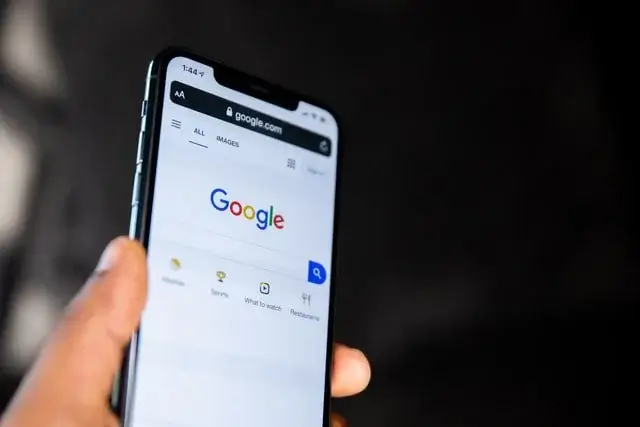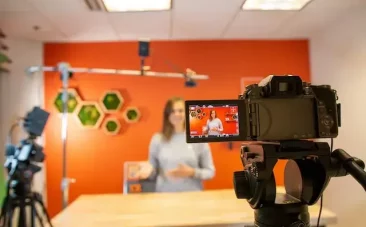Table of Content

- SEO
SEO Mistakes To Avoid
SEO can seem like an advanced discipline sometimes and therefore it is also easy to get into mistakes at times. That’s why we’ve put together some of the most common – and dangerous – mistakes here so you can safely get on with your SEO work without stepping into spinach.
Backlinks
It’s all about finding the right balance and avoiding the pitfalls of black hat SEO. Instead, you should work purposefully with a well-developed link strategy, employing techniques such as link building from credible sites and exchanging links with relevant partners and customers.
Obtaining too many link references from the “wrong” pages can be detrimental to your SEO ranking, as Google suspects you of attempting to manipulate search results.
Another mistake is to invest heavily in link building in a short period of time, causing search engines to suspect you. However, Google is gradually becoming intelligent enough to automatically sort out erroneous or spam links. However, this means that your efforts in obtaining these links will be in vain.
Alternatively, you may be subjected to a spam “attack” in which you suddenly receive a large number of external links from spam pages or spam comments on social media, etc.
You will be able to use the disavow tool here to show Google that these are a mistake and not SEO from your hand.
Static Landing Page Creates Bad SEO
Because new content is constantly being added, the information flow has never been as fast as it is now, making it easier to become obsolete.
As a result, it is critical that you maintain your position in the search results by simply keeping your website updated, editing errors, and adding new information.
Google will always be on the users side because your business is designed to provide the most relevant content to them.
As a result, it is critical not to make the mistake of abandoning your SEO content as soon as it is published.
Remember to prioritise your readers/customers, because both your readers and Google will appreciate it.
Not Mobile Friendly
In just a few years, mobile friendliness has gone from a nice to have to a must-have, and it is now completely necessary – even in terms of SEO.
It has shifted from mobile “friendliness” to – “optimization,” which is now in focus, and since Google now ONLY looks at your mobile page, the optimization part is one of the most important aspects of your website if your users / readers / customers are to find you in the search results.
A common blunder is assuming that you can force users to use the desktop version – or that purchases are always made via desktop.
Another error we see is that you have removed certain functions from the website on mobile, resulting in only a “light version” of the website on mobile.
If you are looking for a new website, you should be aware that the website (or possibly “theme” if you work with a purchased WordPress website) is fully responsive (and SEO-optimised).
If your website does not load properly on a mobile phone, you risk not only not appearing in Google search results, but also having a high bounce rate because users are unable to access your page and leave. A high bounce rate on your entire website, as well as individual pages, can be detrimental to your SEO.
Error in robot.txt
This may seem insignificant, but the larger the website (e.g., the number of subpages), the more important it is for Google to understand which pages on the website are the most important.
It is thus a common mistake that many people make by failing to rank their content and pages in for example a sitemap, so that search engines can quickly form an overview.
For example, at IBEX Media Group, we have a blog page simply titled “SEO” to which all of our other SEO-related blog posts link in order to show Google that this is our most important page on the subject.
This is also a good idea if you have a blog or a website with a lot of information that Google has gathered while sorting through.
Because Google does not index all of your pages, it is critical to understand which SEO pages are important to index and to keep these pages up to date so that they are always relevant to your search engine rankings.
On this page, you will encounter the classic mistake of “spamming” with unimportant information.
Irrelevant SEO Content
This is not quite as acute a mistake as if your website, for example, is not mobile optimised. However, it can still be serious as it is a waste of time (and money) to spend energy on creating content that is not relevant to your readers and potential customers.
One way you can avoid making the mistake of producing irrelevant content is to explain your target audience’s search intent – that is their search intent.
In addition, you can do a keyword analysis, which we recommend that you repeat on a regular basis, as a fixed part of your SEO strategy.
In addition to responding to your potential customers’ search intentions, you can use the creation of relevant SEO texts to brand your company as having great expertise in exactly what they are looking for or need help with.
Accuranker and Ahrefs are effective tools for analysing your users’ search intentions, and they can also show you related searches so you don’t make the mistake of optimising for keywords with very low search volume.
Errors in Page Titles & Meta Descriptions
If you are ranking at the top of page 1 in Google’s search results because of an effective SEO effort, but the title or description neither invites you to read more nor indicates you can respond to the search intent, users may not click to your website.
As a result, it is critical that you devote a few minutes to creating a proper page title and meta description for all of your searchable pages on your website.
Wrong Use Of Internal links
There are several compelling reasons to include internal links in your text and on your pages, as they can help both your users and Google navigate deeper into your website while decreasing bounce rates.
We see this SEO mistake when people either overlook the potential of internal links or overuse them.
By including internal links in your text, you can persuade Google to index several of your subpages, which may be more than 4-5 links (clicks) away from your website’s front page.
It can also assist readers in finding more relevant content and becoming more knowledgeable about your area of expertise. Furthermore, when your readers click from one page to another, your pages will automatically have a lower bounce rate, which will be reflected in the search engines’ SEO “score.”
Excessive use of internal links, on the other hand, can be detrimental to your SEO, particularly if the links are completely randomised to your various pages and without regard for the anchor text.
When you do not have an eye for the anchor text to act as a guide for the search engines, you make a classic mistake. Internal links, like so much else in SEO, should be used strategically and thoughtfully so that they serve your readers first and foremost.
SEO Keyword Spam
This is a great way to undermine your entire SEO campaign because search engines do not like spam of any kind.
The worst thing that can happen to your keyword spam page is that Google flags it as spam.
But how many times must a keyword be repeated in order to make no mistakes? The short answer is that we don’t know for certain because Google does not share this type of information.
The slightly longer version is that many tests have been conducted to determine that approximately 2 repetitions of keywords per 100 words appears to have the desired effect on search results.
However, keep in mind your readers (rather than Google) and make sure to incorporate your keywords naturally into the text so that it does not become unnatural or very advertising-typical to read.
Short SEO Content
Beautiful images that change every 3 seconds in a slider or a video that plays in the background of the website and runs in a loop to create an atmosphere, show the products, illustrate the level of service, or present the team.
These types of websites exist, and more are on the way, to both create eye-catchers and build more interactive websites. The disadvantage is that it leaves less room for text on your website.
The issue with this, and the common SEO mistake, is that Google reads and indexes your website based on code.
That is, even if you labelled the video “product slides” or “latest shoe collection” or something similar, it will not provide search engines with a clear picture of what your website is about.
It is therefore recommended that you always have some text on each of your pages that describes what your business or website is dealing with, even if you have prioritised aesthetics. It is recommended that the front page contain approximately 350 words to provide Google with enough text to work with.
If you require additional assistance, you should contact an SEO agency in Bangkok. Visit our contact page to get in touch with our digital marketing agency specialists for a free strategy session.



![happy-young-asia-businessmen-businesswoman-meeting-brainstorming-some-new-ideas-about-project-scaled (1) Top 10 Digital Marketing Agencies In Thailand [2024]](https://www.ibex.co.th/wp-content/uploads/elementor/thumbs/happy-young-asia-businessmen-businesswoman-meeting-brainstorming-some-new-ideas-about-project-scaled-1-qji23hztd22xdvln8gjfucufhgiekie3sh7loq8di6.webp)





